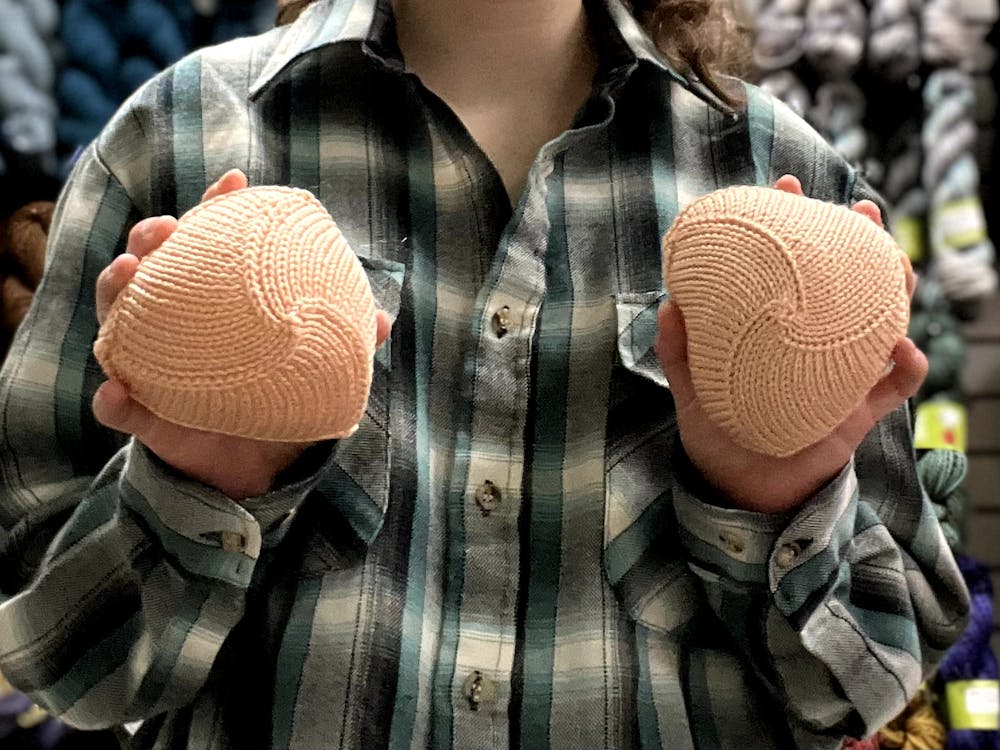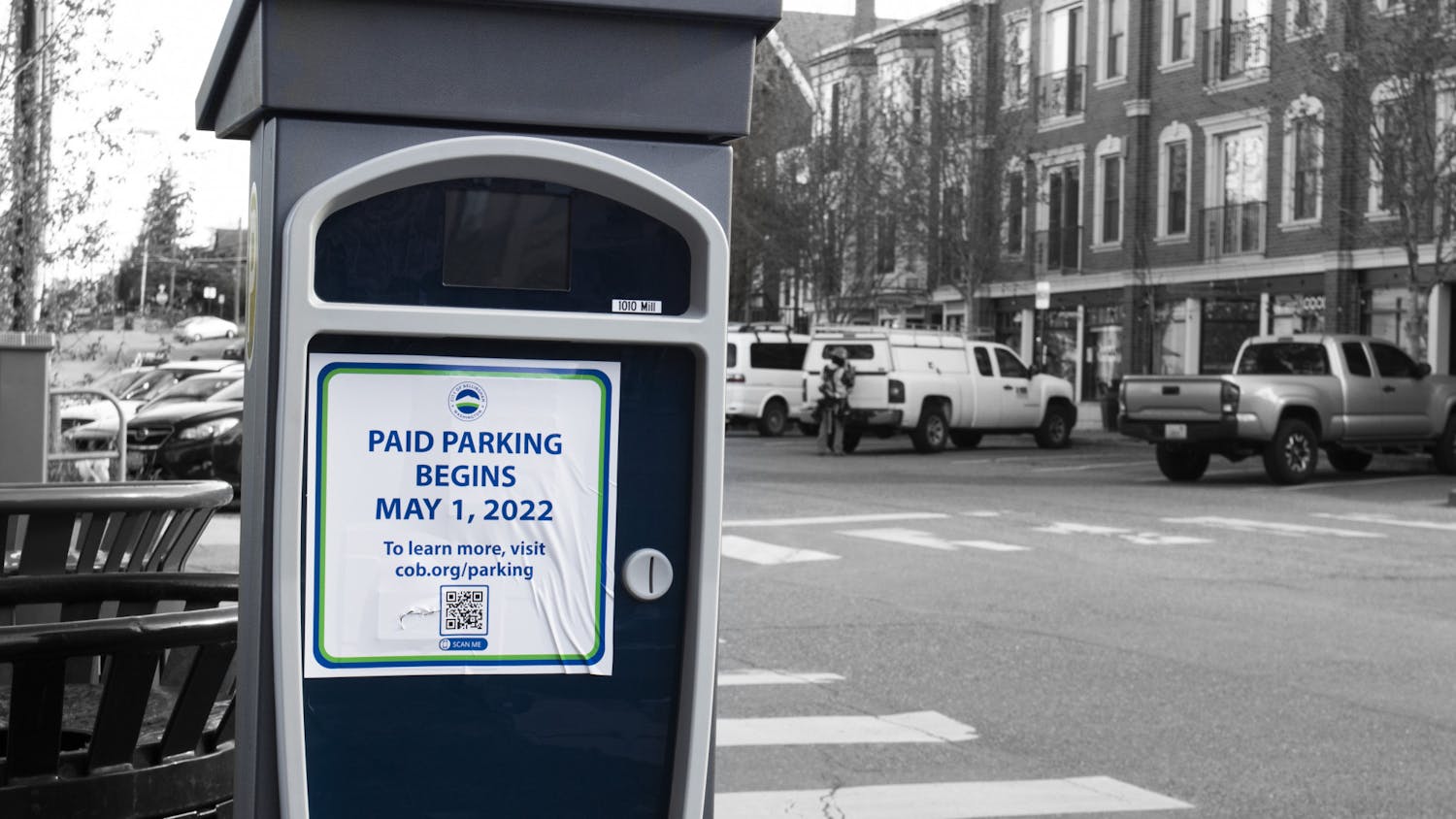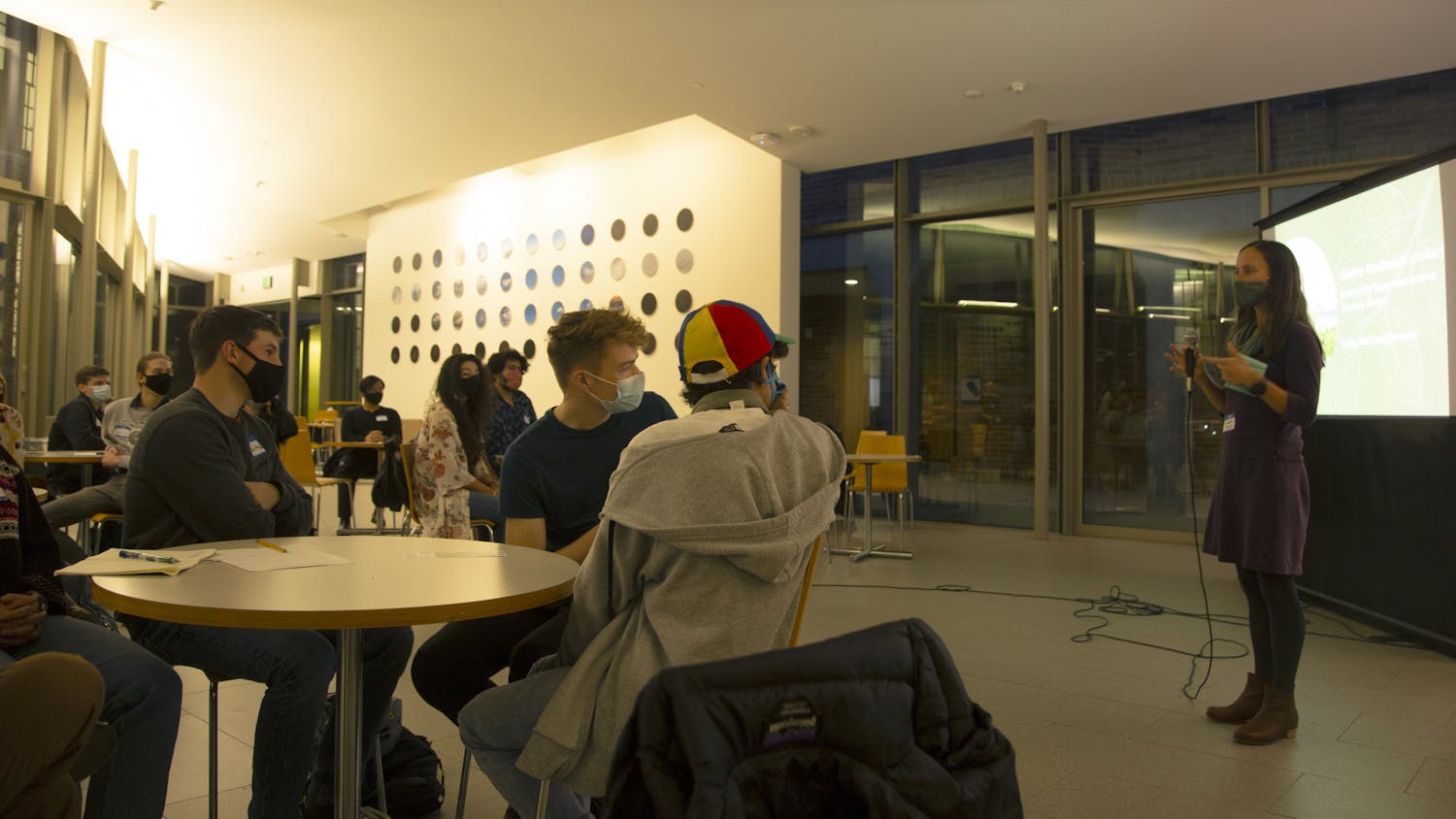When someone asks “What are you knitting?” the answer is normally, “a scarf” or “a hat,” but for volunteers knitting for a Bellingham-based charity, the answer is a bit unexpected. Knitted Knockers supplies thousands of hand-knit breast prostheses to breast cancer survivors all over the country.
It all began with founder Barb Demorest, who has lived in Bellingham since 1969.
She came up with the idea of Knitted Knockers after her own battle with breast cancer in 2011. After undergoing a mastectomy, Demorest was devastated to learn that she was unable to get reconstructive surgery right away.
When looking into alternatives to reconstructive surgery, Demorest found that the prostheses available weren’t going to work for her. Her doctor had heard of women knitting their own breast prosthetics, so he urged her to give it a try. The knit prosthetics would be lighter and would cost only as much as a ball of yarn and some stuffing.
“The most important thing is that it’s soft,” breast surgeon Cary Kauffman said in a promotional video on Knitted Knockers’ website.
The silicone prostheses that are typically used are often specialized and complicated to wear and according to Kauffman, “The specialized things are so expensive.”
After hearing about this option, Demorest asked a friend to make her a pair. When she put them on for the first time, she was thrilled.
“I absolutely flipped out over them,” Demorest said. “They were so soft and light and beautiful. And I could wear them in a regular bra, not an old lady bra. It was life-changing for me.”
These knit prostheses are made out of soft yarn and filled with an adjustable amount of filling to provide the right amount of fill and shape. Women can slip them into a regular bra and not have to worry about them falling out or being too heavy, according to Demorest.
Demorest loved her knockers so much that she wanted to share them with every woman going through the same struggle. So she and her friends started knitting away.
“I joke that it started in my laundry room,” Demorest said. “But the fact is a small group of volunteers giving of their gifts and talents can really accomplish a lot.”
With the help of local yarn store Apple Yarns, the organization was able to move out of the laundry room and into a bigger space. With only one location and tons of orders, they had their work cut out for them.
“We had people in here every week stuffing, fixing and shipping orders,” Andrea Evans, owner of Apple Yarns said. “We've been involved from the very beginning, we've just helped as much as we can.”
Since its origins in 2011, Demorest said that she and her team have inspired and equipped almost 5,000 volunteer groups to make and distribute these knockers. At last count, Knitted Knockers has provided almost 400,000 knockers for free.
Operations have changed slightly since the pandemic. Rather than meeting every Wednesday at the Apple Yarns location, the volunteer group meets at a larger space downtown.
The demand for these prostheses is as high as ever, but with the help of all the groups around the country, the distribution of knockers has not slowed.
According to Demorest and Evans, the organization distributes on average 10,000 to 12,000 knockers every month.
Knitted Knockers has been successful in bringing in and maintaining thousands of volunteers. Demorest attributes a lot of this success to the fact that the foundation is so pure.
“We don’t charge for anything,” she said. “Nobody gets a paycheck in our organization.”
The fact that the knockers are free is an important part of the organization. According to Demorest, receiving something like this can be healing for cancer survivors.
“This product is a gift of love and care,” she said. “Volunteers care and are not benefiting from it.”
The foundation is able to cover shipping and operating costs because of generous donations from both volunteers and people who have received the knockers.
Knitted Knockers not only supplies these prostheses to doctors' offices but also fulfills orders online for free to any woman who wants one.
The reviews from women who have received knockers are raving. Evans recounted a time when she gave a pair of knockers to a breast cancer survivor who was a young mom. She had said she was too busy for heavy, uncomfortable breast prostheses.
“She was really thankful,” Evans said. “They're free, they're not hot, they're not heavy.”
For people interested in helping create more heartwarming moments like this one, there are three main ways to help out, according to Demorest.
The first is to make knockers and send them to the address listed on the website, the second is to share Knitted Knockers on social media and the third is to donate.
It’s not just the people receiving the knockers who benefit from this charity, volunteers benefit as well. Demorest told a story about an old woman who was mostly blind and could only crochet under a magnifying glass. Despite her vision, she decided to start making knockers.
“She says this has given [her] purpose,” said Demorest. “I just thought that was perfect.”
Anybody can make a knocker using the approved patterns and yarns that can be found on Knitted Knockers’ website.
Sharing on social media can also largely benefit the charity and it doesn’t involve any knitting or crocheting skills. It also helps reach more people who might need something like this in their lives.
Demorest said that since one in eight women have breast cancer, “We all know somebody that can benefit.”
To donate, find free knocker patterns or find out more, go to knittedknockers.org.
Jill Guercio is a writer for The Front this spring quarter. She is planning to major in journalism and possibly minor in Women Gender and Sexuality Studies. In her free time, she loves to make jewelry, crochet, and run her small business.






